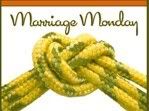Well I don't know if you all remember last week when I talked about the results from the soap poll or not, but I had a reader, Anonymous, to ask, "When are we going to talk about the "true" soap stuff?" I told her probably next Thursday, so obviously, today is the day. I was delighted to see that someone was really interested in this bit of trivia. I will try and give you the answer today and I hope someone else is intrigued or is more knowledgeable after the information I'll give.
Alright, to tell you the truth, you may not be using what you think you're using when you purchase it off the store shelf and bathe with it at home. We're talking the bars we use to cleanse and sometimes deodorize our bodies with, that we call or the company that produces it calls SOAP. To be called soap, true soap, it has to meet the FDA'S definition of what that is and be regulated (not by the FDA in the end) by the Consumer Product and Safety Commission (CPSC).
True soap, by the FDA's definition is "a product in which most of the nonvolatile matter consists of an alkali salt of fatty acids and whose detergent properties are due to these alkali-fatty acid compounds." Translation--soap is saponified oils (olive, palm, coconut, animal fat, whatever you use to make it with) and lye liquid (water and lye mixed together) with the naturally occurring glycerin retained in the soap during the saponification process. Most store-bought bars are synthetic detergent "beauty" or "bath" bars, although some "soap bars" may be soaps with added synthetic detergents (companies know you won't buy it if they label it for what it is. Would you buy a " hardened, rectangular lump of synthetic detergent with artificial rose fragrance?") . In their defense though, these products were made to be just as good as soaps in their functioning, but are increasing on the market primarily because they are more "user-friendly" in hard water (true soaps work well in soft water but react with minerals in hard water to leave soap scum behind). There were and may still be though, more reports of adverse reactions from synthetic detergent bars than true soaps because of their ingredients like fragrances, colors, and other additives. This is not to say that people have not had or will not have an adverse reaction to a true soap and that they are completely safe for everyone. Obviously, that cannot be true.
Soaps and synthetic bars can be labeled just true soap and be regulated by the CPSC, or, can be labeled a cosmetic, a drug, or a cosmetic/drug combination. None of the last 3 categories can simply be regulated by the CPSC anymore, but have to come under the FDA, and, their labeling requirements change. True soap, because of its simplicity and its protection by the FDA Act of 1938 (exempting it from regulation as a cosmetic), does not have to have a listing of its ingredients on its label. All the others do though, and additionally, if it's a drug or combo, it must meet FDA's drug labeling requirements and safety and effectiveness requirements. An example would be an anti-dandruff soap. Now it's not just a soap, but a curative or something medical. It gets a little complicated, if you get outside of your true soap category. So long as true soap has the simple ingredients named by the FDA and makes no claims outside of just cleansing, it can't be controlled or regulated by the FDA. This makes it simple for small companies and home soap makers to make their product and sell it without having to go through so much red tape, etc. I really appreciatd this when I was making soap.
A quote from Harold Hopkins' article says, "Fortunately, plain soap of the noncosmetic, nondrug variety has earned a good reputation. Apart from getting the familiar sting from getting soap into your eyes or the peril of slipping on a bar in the bathtub or shower, common bath and hand soap is relatively safe. In fact, we often use it to remove other substances from our hands and skin that we think are a lot less safe." Amen, I say!!
The kind I made was a Castile type soap, primarily made of olive oil. Before I added essential oils or herbs and other botanicals, it was just a good, plain, hard bar of soap that was good for washing anything from the body to things in the home. I liked it because it washes away really squeaky clean. No residue or oiliness left behind. In fact, some of the really strong bars will strip away all traces of surface dirt and oils to the point where you need to apply lotion so that your skin won't be dried out. These were good for using after gardening or working on a car, etc. I also made soap using goat's milk. I like these a lot. They really feel silky, but again, won't leave your skin feeling like something was left behind.
From now on, you'll know what you're buying in the store and why. I won't tell you not to use the synthetic bars the stores sell or what you've been using to this point just because I happen to Iike "true soaps." If it ain't broke, don't fix it, I say!! As long as it's been working for you. I've used and still use both for different purposes, but I have a preference for handmade, true soaps.
In the words of Forrest Gump, "That's all I have to say about thaat."
Thursday, March 13, 2008
TEST YOUR "SOAP" KNOWLEDGE
Labels:
Miscellany,
Thursday Potpourri
Subscribe to:
Post Comments (Atom)





















No comments:
Post a Comment